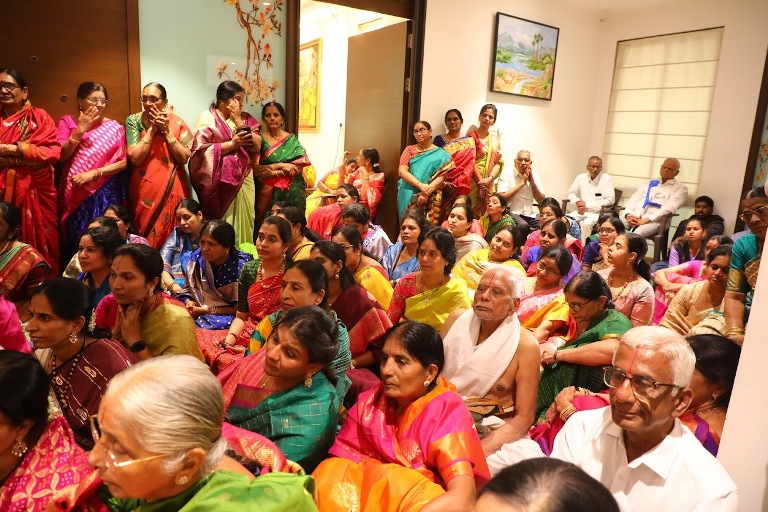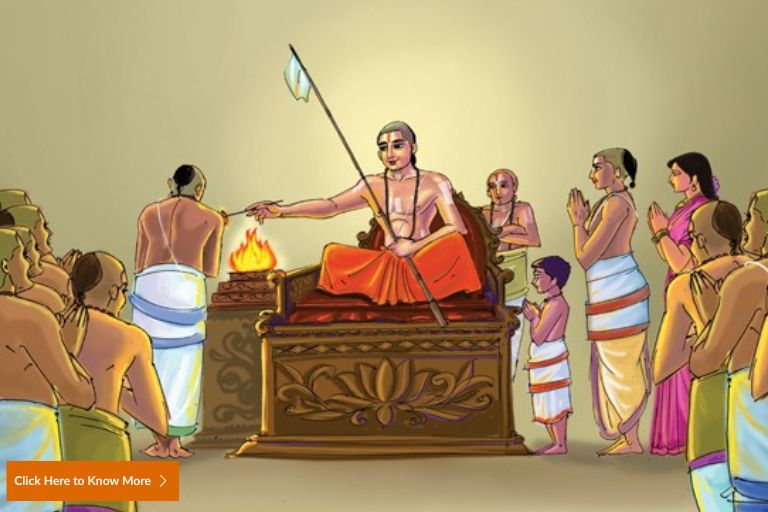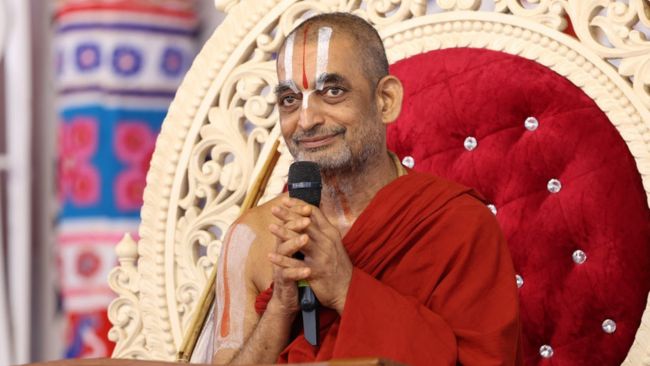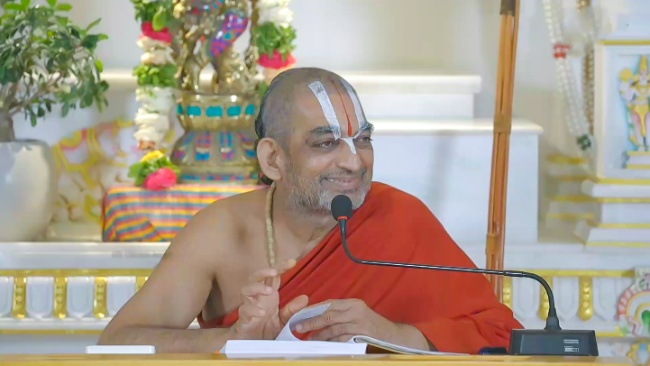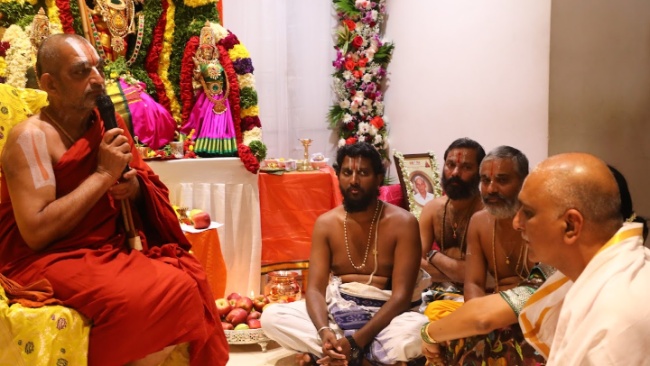
When the Soul Walks Out…
A patient is rushed into the emergency room. Doctors prepare him for urgent surgery, then move him into a sealed operating theatre—every door locked, no entry or exit allowed without permission. After hours of effort, the doctors finally emerge and say, “Sorry… he is gone.”

But where did he go?
The body is still there. Who left? And with all the doors locked, how could anyone have gone unnoticed? If nothing and no one was seen leaving, then what do we mean when we say, “he is gone”?
We are referring to the soul, without which the body cannot function.
We are speaking of the soul, immeasurably small that it can leave “locked” rooms and “closed” spaces unnoticed.
We are referring to the soul, which is not independent.
We are referring to the soul whose very ability to function is sustained and empowered by the Supreme Being, by God.
Each one of us is an individual soul, yet we remain tightly bound to the body and its attributes. One day, however, we will leave this body behind and move on from it. The very purpose of taking birth in a human form is to realize this truth and to live in a way that frees us from returning to bodies that are limited, fragile, and easily drawn toward the ever-changing currents of worldly interests.
How can we say that a soul returns, or that it must go somewhere permanently?
One may wonder if the soul simply ceases to exist—like a diya that, once extinguished, is just gone. The flame doesn’t travel anywhere; it simply stops burning. Perhaps, one might think, the soul too just ends and disappears.
Sri Krushna clarifies it…
na ja:yathe: mriyathe: va: kada:chith
na:yam bhu:thva: bhavitha: va: na bhu:yaha |
ajo: nithyas sa:svatho:yam pura:no:
na hanyathe: hanyama:ne: sari:re: || [Bhagavad Githa 6.17]
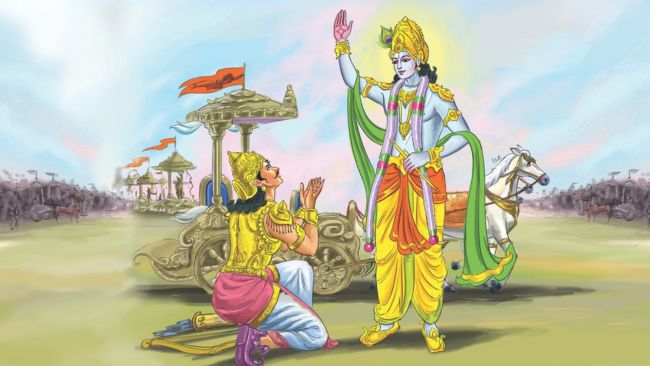
The soul is never born; It never dies.
Having once come into existence, It never ceases to be.
It is unborn, eternal, ever-existing, and ancient.
It is not destroyed when the body is destroyed.
Sri Rama, too, speaks of the soul’s journey to a place from which it never needs to return to the endless cycle of worldly bodies. When He performs the final rites for Jatayu, He commands that Jatayu’s soul be taken to the highest and most supreme abode.
maya:thvam samanujna:thaha gaccha lo:ka:n anutthama: ya:gathihi yajnasi:la:na:m…

By My sanction, may you ascend to the supreme realms—
to that state from which there is no return to birth and death;
to that highest abode attained by those who live their lives as an offering,
by those whose minds are fixed on the Divine.
To the most supreme loka that I have earned,
I command that your soul be taken there.
How long does the soul take to reach that highest abode?
The fastest known phenomenon in this world is light, traveling roughly 186,282 miles per second in a vacuum. Yet scriptures state that the soul moves even faster than light.

- Mantra is the sacred formula we chant and contemplate. Its meaning strengthens our understanding of who we truly are, what our ultimate goal is, who can lead us there, what obstacles stand in our way, and what the true means to liberation is.
- Naama is like adding a divine surname—dasa or dasi—signifying that we belong to God and live in His service.
- Yaaga is the discipline of living life as an offering to God, transforming every action into worship.
- Taapa is the mark of the heated seal—sankha and chakra—imprinted on the shoulders, declaring our unwavering faith in Lord Narayana as the Supreme. It symbolizes our readiness to receive the heat of divine grace that burns away our sins.
- Pundra is the sacred tilak worn on the forehead. The white and red together reflect peace and love—which we are meant to embody and share with the world
Such qualified soul is welcomed in each of the twelve lokas, divine abodes one after another. The resident-souls of each abode receives it with great honor and sends it forward with celebration to the next. At the end of this divine journey, the soul finally reaches the ultimate abode, where the Universal Mother and the Lord themselves care for it—just as loving parents would for a child returning home after a long, long time. This is called archara:di ma:rga, the path of archi and beyond.
Archira:di ma:rga is how the soul walks out if it were to not return…!
Only when a loved one departs do we pause to reflect on these deeper truths of life. Otherwise, we remain absorbed in “serving” the endless demands of the body and in running after our daily, mundane activities. But when someone dear to us leaves this world, the mind—usually hard and unyielding like iron—melts in its grief.
That is precisely why our Elders take such moments to remind the family and the gathered well-wishers of the eternal truths of life. When the mind is softened, these teachings can enter deeply and become firmly imprinted within.

– From the discourse of HH Chinna Jeeyar Swamiji
– Paramapadotsavam, 11th Nov 2025
– A celebration to experience a soul’s journey to Paramapadam
– Sriman Tenneeru Satyanarayana ji, father of Sriman Harish Rao ji
– MLA, Telangana



